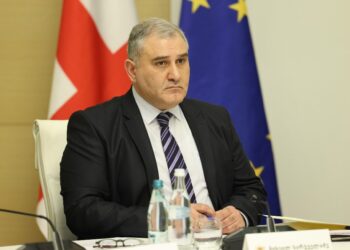This week, the Patriarchate confirmed that the government’s ruling party has proposed declaring Orthodoxy as the state religion. Andria Jaghmaidze, head of the Public Relations Service of the Patriarchate, indicated that the Church is currently debating how to formulate the proposal and is expected to make a decision soon. Jaghmaidze noted that while the government’s proposal aims to enhance the Church’s role and status, the specific wording—whether to declare Orthodoxy as the state religion—may not be as crucial as finding a formulation that supports the proposal’s intent.
“Recently, the government has shown a strong commitment to protecting national values and traditions, pursuing a policy of peace, and supporting the Church,” Jaghmaidze said. “In this context, we should view the proposal as an effort to further strengthen the Church’s role and status.”
In contrast, Archbishop Zenon Iarajuli expressed concerns about the implications of such a declaration, arguing that designating the Orthodox Church as the state religion could lead to its institutional subordination to the government, which may “undermine the Church’s independence and contribute to its institutional destruction.”
A meeting has been set by the Patriarchate and government today, August 29, to discuss the issue further.
Eastern Orthodox Christianity was the state religion for most of Georgia’s history until 1921, when the country, after declaring independence from Russia in 1918, was taken over by the Red Army during the Soviet invasion and incorporated into the Soviet Union.
The current Constitution of Georgia recognizes the Georgian Orthodox Church’s significant historical role while ensuring its independence from the state. The relationship between the government and the Church is further regulated by the 2002 Concordat.
By Team GT














